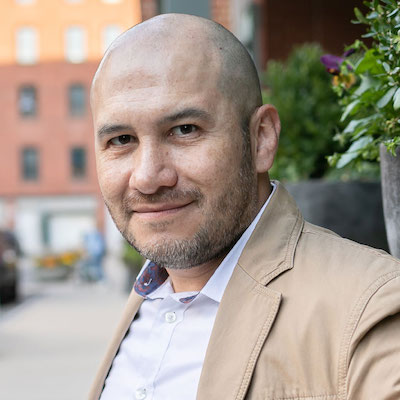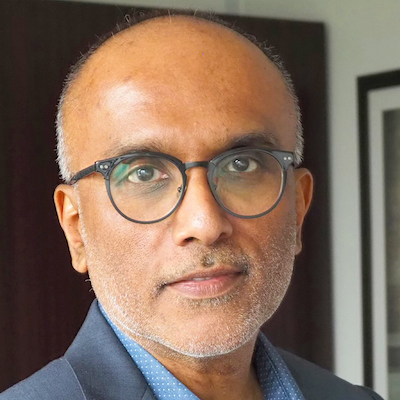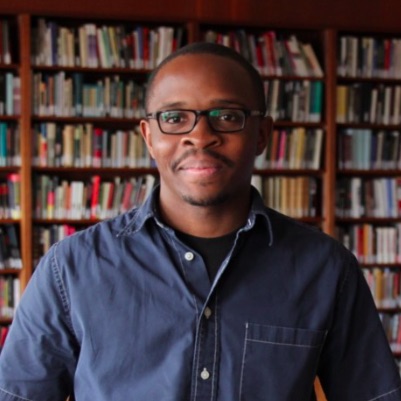Doubling down on Brazilian journalism’s strengths to stand up for democracy
Threatened, exhausted, and working in a precarious labor environment. That is how Brazilian journalists walk into 2022.
The pandemic seems to be on its way out. Although the world has grown heavy with the weight of the last two years — which sometimes feel like one and the same, atypical as they were — there’s hope on the horizon as vaccination campaigns make progresses (and despite the fear of new variants such as Omicron).
We cannot say the same for journalism, however. Covering the pandemic has been one of the greatest challenges to our profession, and that work is ongoing. Add to that covering major elections and the fact that both will have to happen under the increasingly hostile conditions faced by journalists.
2022 is going to be a tough year. The work of the press will face an ecosystem of disinformation that has thus far captivated minds to offer an individualistic society a belief system that refuses truth in exchange for a dopamine fix and peer recognition. This world view — now turned government policy — saps the strength of the democratic state from the inside while also striking those who still guard democracy from the outside.
Journalism is one such guardian, but it will not be enough for the enterprise to merely report on the facts. We must do more.
But how do we do that, if data — the essential raw material of our craft — is now denied to us? Once official statistics are denied to us, what follows is (an even greater) lack of transparency, with the proliferation of biased interpretations of the personal data protection law. The sole intention? Hindering the work of the press. And let’s not forget the online and offline attacks, targeted especially at women in media, which are bound to continue while journalists from all over Brazil closely follow candidates to governor and president.
As if the violence faced on the streets were not enough, in 2022 journalists might not have a newsroom to go back to. Given the events of 2020 and 2021, it’s clear that the hybrid workplace is here to stay. But for journalists, whose labor conditions have seemingly gotten worse every year, the idea of a hybrid workplace seems to have more drawbacks than benefits. To make matters worse, the home — which was formerly a safe space — was allowed to be infiltrated as journalists were subject to more hate.
All is not lost, however. In 2022, a sort of journalism that will gain more prominence is journalism built on listening and one that believes in being close to the people as a way to broadcast its message. 2022 will be the year of a plural, accessible, inclusive journalism — and in being so, one that is more capable of representing the complexity of Brazil.
For the sixth time, Farol Jornalismo and Associação Brasileira de Jornalismo Investigativo (Abraji) invited journalists and researchers to reflect on what we should expect from the coming year. If we are reaching the end of this year feeling like it lasted twice as long, we will have to double down on our strengths to face the next. Journalism will be the resistance in 2022; in resisting it will reclaim its most basic values, either through consolidated practices or through new ways of fulfilling its social function. That is exactly what the 10 authors invited to this edition of O Jornalismo no Brasil predict.
Sylvio Romero Corrêa da Costa, the founder of Congresso em Foco, says that both democracy and journalism will be put to the test, and it will not be an easy battle. In a context of growing authoritarianism, Costa suggests three measures as a course of action: creating partnerships with science, incorporating technology into processes, and building new relationships with the public. In addition, he stresses that journalism must beware its propensity to invalidate politics and politicians. “Promoting ‘antipolitics’ makes the life of populists who claim themselves to be above institutions and the law easier,” he writes.
Although da Costa provides us with a few suggestions, there are more questions than there are answers on how to cover politics in 2022, as Juliana Dal Piva, UOL reporter, observes. One of those burning questions is how to ensure equal coverage to all presidential candidates while knowing that Bolsonaro renounces and tramples on the press and its workers. “Organizations and journalists must seek alternatives to try […] and get Bolsonaro out of his comfort zone, bring him into the clash of ideas about Brazil and its administration. It will not be easy, as Bolsonaro steps into the presidential race with no positive data to show for himself.”
Verônica Toste, a researcher, and professor at Universidade Federal Fluminense, warns us of the escalation of violence against journalists. “With the approaching 2022 elections in Brazil, violence tends to intensify. That is because the topics covered by the press most associated with violent attacks are those connected to politics and elections, followed closely by fact-checking and gender, human rights, and social policy issues,” she writes.
Another challenge for Brazilian journalists in 2022 will be access to data, according to journalist Maria Vitória Ramos. The director of Fiquem Sabendo, she predicts journalists will have a hard time delivering fundamental information for people to compare candidates. Not only because of the growing misuse of the Brazilian Data Protection Law to censor access to public data and documents obtained through the Access to Information Law, but also because entire databases have been vanishing into thin air or have simply stopped being updated by the public administration.
The lack of data might stop the growth of science journalism in its tracks, despite its advancement and development in Brazil over the last few years. In 2022, journalism must remain vigilant in covering the pandemic and not lose track of the latest in climate change. “From 2022 on we will have to focus more and more on these stories from a local perspective; how each phenomenon occurs and changes each of our lives,” writes André Biernath, science reporter with BBC Brazil.
The less data we have, the more fake news will thrive and spread. Luís Felipe dos Santos, editor of Aos Fatos, warns us that things are not looking up for 2022. In his text, he shows us how disinformation tactics have captured mechanisms to compete for attention. In exchange for peer recognition and sympathy, people succumb to a belief system that is often far removed from the factual truth. The challenge for 2022 is beyond fact-checking: It will be to get people back and to build (and rebuild) relationships and connections that work outside the logic of online networks.
In that sense, the style of journalism that is usually practiced in Brazilian urban and suburban areas is a glimmer of hope. Laércio Portela, from Marco Zero Conteúdo, lists a series of initiatives based on listening to the public as a form of broadcasting information, all spread throughout the north and Northeastern areas of Brazil. “Being close to the stories, committed to listening and to delivering content that connects people’s everyday lives to political platforms will make a difference in news coverage next year,” he says.
Lenne Ferreira, from Alma Preta, is of a similar mind. She reminds us that traditional journalism often neglects stories and approaches certain segments of society in a stereotypical manner. There has been a substantial change in that respect, especially due to people’s reactions on social media. After all, she says, “The role of journalism is to bring plural narratives into the spotlight, to challenge outdated common sense ideas that do not represent the reality and diversity of the Brazilian people.”
Journalism is advancing in terms of diversity, but it still lacks when it comes to accessibility, reports journalist Gustavo Torniero. With his own experience as a blind person and with other data, he shows us that very few media outlets are worried about ensuring that their content is accessible for people with disabilities. He says that ensuring access and inclusion for these people must be a priority for journalism in 2022. “That is the only way we can perform our duty: providing reliable, quality, accessible information to all people,” he writes.
Journalists must add the usual ongoing shifts in the field to the challenges brought about by the year 2022. The most recent of those shifts, accelerated by the pandemic, is the disappearance of newsrooms and the consolidation of virtual forms of labor organization. According to the Universidade de São Paulo researchers Ana Flávia Marques and Janaina Visibeli, transitions and shifts in those regards will continue in 2022. “Be it with a refinement of physical structures, or with the adoption of hybrid or ‘cloud-based’ models of labor, the tendency is that newsrooms become reduced spaces that house journalists working with data science or marketing,” they predict.
Saying that 2022 will be tough is an easy, and obvious, prediction. In 2022, despite the exhaustion, the attacks, and the precariousness of labor, may we promote growth in our field, and further reinforce the barricades that guard democracy.
Moreno Cruz Osório is co-founder of Brazil’s Farol Jornalismo.

Threatened, exhausted, and working in a precarious labor environment. That is how Brazilian journalists walk into 2022.
The pandemic seems to be on its way out. Although the world has grown heavy with the weight of the last two years — which sometimes feel like one and the same, atypical as they were — there’s hope on the horizon as vaccination campaigns make progresses (and despite the fear of new variants such as Omicron).
We cannot say the same for journalism, however. Covering the pandemic has been one of the greatest challenges to our profession, and that work is ongoing. Add to that covering major elections and the fact that both will have to happen under the increasingly hostile conditions faced by journalists.
2022 is going to be a tough year. The work of the press will face an ecosystem of disinformation that has thus far captivated minds to offer an individualistic society a belief system that refuses truth in exchange for a dopamine fix and peer recognition. This world view — now turned government policy — saps the strength of the democratic state from the inside while also striking those who still guard democracy from the outside.
Journalism is one such guardian, but it will not be enough for the enterprise to merely report on the facts. We must do more.
But how do we do that, if data — the essential raw material of our craft — is now denied to us? Once official statistics are denied to us, what follows is (an even greater) lack of transparency, with the proliferation of biased interpretations of the personal data protection law. The sole intention? Hindering the work of the press. And let’s not forget the online and offline attacks, targeted especially at women in media, which are bound to continue while journalists from all over Brazil closely follow candidates to governor and president.
As if the violence faced on the streets were not enough, in 2022 journalists might not have a newsroom to go back to. Given the events of 2020 and 2021, it’s clear that the hybrid workplace is here to stay. But for journalists, whose labor conditions have seemingly gotten worse every year, the idea of a hybrid workplace seems to have more drawbacks than benefits. To make matters worse, the home — which was formerly a safe space — was allowed to be infiltrated as journalists were subject to more hate.
All is not lost, however. In 2022, a sort of journalism that will gain more prominence is journalism built on listening and one that believes in being close to the people as a way to broadcast its message. 2022 will be the year of a plural, accessible, inclusive journalism — and in being so, one that is more capable of representing the complexity of Brazil.
For the sixth time, Farol Jornalismo and Associação Brasileira de Jornalismo Investigativo (Abraji) invited journalists and researchers to reflect on what we should expect from the coming year. If we are reaching the end of this year feeling like it lasted twice as long, we will have to double down on our strengths to face the next. Journalism will be the resistance in 2022; in resisting it will reclaim its most basic values, either through consolidated practices or through new ways of fulfilling its social function. That is exactly what the 10 authors invited to this edition of O Jornalismo no Brasil predict.
Sylvio Romero Corrêa da Costa, the founder of Congresso em Foco, says that both democracy and journalism will be put to the test, and it will not be an easy battle. In a context of growing authoritarianism, Costa suggests three measures as a course of action: creating partnerships with science, incorporating technology into processes, and building new relationships with the public. In addition, he stresses that journalism must beware its propensity to invalidate politics and politicians. “Promoting ‘antipolitics’ makes the life of populists who claim themselves to be above institutions and the law easier,” he writes.
Although da Costa provides us with a few suggestions, there are more questions than there are answers on how to cover politics in 2022, as Juliana Dal Piva, UOL reporter, observes. One of those burning questions is how to ensure equal coverage to all presidential candidates while knowing that Bolsonaro renounces and tramples on the press and its workers. “Organizations and journalists must seek alternatives to try […] and get Bolsonaro out of his comfort zone, bring him into the clash of ideas about Brazil and its administration. It will not be easy, as Bolsonaro steps into the presidential race with no positive data to show for himself.”
Verônica Toste, a researcher, and professor at Universidade Federal Fluminense, warns us of the escalation of violence against journalists. “With the approaching 2022 elections in Brazil, violence tends to intensify. That is because the topics covered by the press most associated with violent attacks are those connected to politics and elections, followed closely by fact-checking and gender, human rights, and social policy issues,” she writes.
Another challenge for Brazilian journalists in 2022 will be access to data, according to journalist Maria Vitória Ramos. The director of Fiquem Sabendo, she predicts journalists will have a hard time delivering fundamental information for people to compare candidates. Not only because of the growing misuse of the Brazilian Data Protection Law to censor access to public data and documents obtained through the Access to Information Law, but also because entire databases have been vanishing into thin air or have simply stopped being updated by the public administration.
The lack of data might stop the growth of science journalism in its tracks, despite its advancement and development in Brazil over the last few years. In 2022, journalism must remain vigilant in covering the pandemic and not lose track of the latest in climate change. “From 2022 on we will have to focus more and more on these stories from a local perspective; how each phenomenon occurs and changes each of our lives,” writes André Biernath, science reporter with BBC Brazil.
The less data we have, the more fake news will thrive and spread. Luís Felipe dos Santos, editor of Aos Fatos, warns us that things are not looking up for 2022. In his text, he shows us how disinformation tactics have captured mechanisms to compete for attention. In exchange for peer recognition and sympathy, people succumb to a belief system that is often far removed from the factual truth. The challenge for 2022 is beyond fact-checking: It will be to get people back and to build (and rebuild) relationships and connections that work outside the logic of online networks.
In that sense, the style of journalism that is usually practiced in Brazilian urban and suburban areas is a glimmer of hope. Laércio Portela, from Marco Zero Conteúdo, lists a series of initiatives based on listening to the public as a form of broadcasting information, all spread throughout the north and Northeastern areas of Brazil. “Being close to the stories, committed to listening and to delivering content that connects people’s everyday lives to political platforms will make a difference in news coverage next year,” he says.
Lenne Ferreira, from Alma Preta, is of a similar mind. She reminds us that traditional journalism often neglects stories and approaches certain segments of society in a stereotypical manner. There has been a substantial change in that respect, especially due to people’s reactions on social media. After all, she says, “The role of journalism is to bring plural narratives into the spotlight, to challenge outdated common sense ideas that do not represent the reality and diversity of the Brazilian people.”
Journalism is advancing in terms of diversity, but it still lacks when it comes to accessibility, reports journalist Gustavo Torniero. With his own experience as a blind person and with other data, he shows us that very few media outlets are worried about ensuring that their content is accessible for people with disabilities. He says that ensuring access and inclusion for these people must be a priority for journalism in 2022. “That is the only way we can perform our duty: providing reliable, quality, accessible information to all people,” he writes.
Journalists must add the usual ongoing shifts in the field to the challenges brought about by the year 2022. The most recent of those shifts, accelerated by the pandemic, is the disappearance of newsrooms and the consolidation of virtual forms of labor organization. According to the Universidade de São Paulo researchers Ana Flávia Marques and Janaina Visibeli, transitions and shifts in those regards will continue in 2022. “Be it with a refinement of physical structures, or with the adoption of hybrid or ‘cloud-based’ models of labor, the tendency is that newsrooms become reduced spaces that house journalists working with data science or marketing,” they predict.
Saying that 2022 will be tough is an easy, and obvious, prediction. In 2022, despite the exhaustion, the attacks, and the precariousness of labor, may we promote growth in our field, and further reinforce the barricades that guard democracy.
Moreno Cruz Osório is co-founder of Brazil’s Farol Jornalismo.
Jody Brannon

Christoph Mergerson

Kristen Muller

Stephen Fowler

Stefanie Murray

Jesenia De Moya Correa

Shalabh Upadhyay

Ståle Grut

Gabe Schneider

Tamar Charney

Wilson Liévano

Matthew Pressman

A.J. Bauer

Meena Thiruvengadam

Joshua P. Darr

Jennifer Brandel

Simon Allison

Sam Guzik

Rachel Glickhouse

Zizi Papacharissi

Gordon Crovitz

Jennifer Coogan

Anthony Nadler

David Cohn

Ariel Zirulnick

Matt Karolian

Mike Rispoli

Mary Walter-Brown

Larry Ryckman

Paul Cheung

Kathleen Searles Rebekah Trumble

Izabella Kaminska

Julia Munslow

Tom Trewinnard

David Skok

Sarah Stonbely

Melody Kramer

Sarah Marshall

Daniel Eilemberg

Parker Molloy

Whitney Phillips

Mario García

Millie Tran

Tony Baranowski

Eric Nuzum

Kendra Pierre-Louis

Jonas Kaiser

Candace Amos

Julia Angwin

Amara Aguilar

John Davidow

Joni Deutsch

Moreno Cruz Osório

Jesse Holcomb

Anita Varma

James Green

Matt DeRienzo

Francesco Zaffarano

Juleyka Lantigua

Richard Tofel

Janelle Salanga

S. Mitra Kalita

Doris Truong

Rasmus Kleis Nielsen

Burt Herman

Gonzalo del Peon

Amy Schmitz Weiss

Natalia Viana

Raney Aronson-Rath

Kristen Jeffers

Andrew Freedman

Simon Galperin

Errin Haines

Laxmi Parthasarathy

Shannon McGregor Carolyn Schmitt

Don Day

Robert Hernandez

Anika Anand

Nikki Usher

Jessica Clark

Alice Antheaume

Megan McCarthy

Cherian George

AX Mina

Joanne McNeil

Catalina Albeanu

Chicas Poderosas

Joe Amditis

j. Siguru Wahutu

Kerri Hoffman

Brian Moritz

Chase Davis

Victor Pickard

Cindy Royal

Cristina Tardáguila

Joy Mayer

Mandy Jenkins

Jim Friedlich

Michael W. Wagner

Christina Shih
